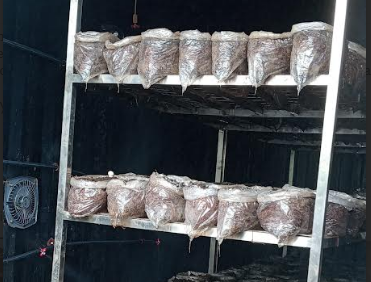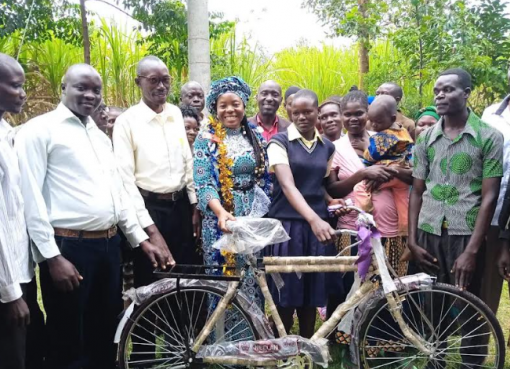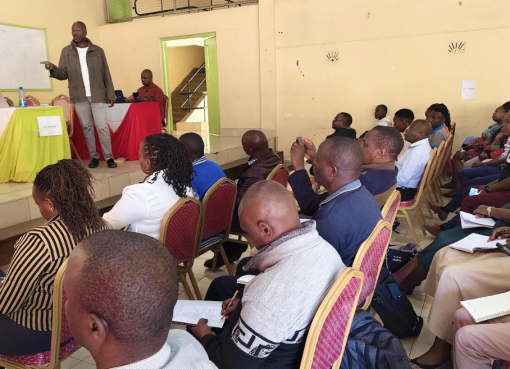A groundbreaking agricultural innovation is quietly taking shape at the leafy campus of Jomo Kenyatta University of Agriculture and Technology (JKUAT), where mushrooms are being grown, not in traditional mud huts, but inside a high-tech 40-foot container.
Using a blend of smart farming technologies, including environmental sensors, CCTV cameras, and smartphone-linked applications, the project is redefining mushroom cultivation.
Farmers can now monitor and manage growth conditions remotely, receiving real-time notifications to ensure optimal productivity.
The project is a collaboration between JKUAT, JKUAT’s innovation hub (J-Hub), South Korean company Mush&Co., and the Korea International Cooperation Agency (KOICA). It also receives strong support from Kenya’s Ministry of Agriculture and the Kenya Agricultural and Livestock Research Organization (KALRO).
“When I came to this country, I was shocked by the size of farms. Kenya is 23 times bigger than Korea, yet many farmers still face challenges. In Korea, even with small spaces, we stack mushroom farms up to 15 tiers high, about 50 meters. This saves space and maximizes yield. Here, you can grow mushrooms even in your backyard without occupying much land,” said Jihyun Jung, CEO and Director of Mush adding that
She added that this method could also help combat deforestation. “In many places, forests are cleared to create farmland. This smart farming technique minimizes land use while ensuring high yields,” she said.
According to the founder and director of J-Hub at JKUAT Laurence Nderu, the project leverages advanced smart farming systems.
“We use sensors to track temperature, humidity, and light levels, key parameters for mushroom growth. If temperatures rise too high, actuators automatically activate sprinklers to cool the container. All of this can be controlled remotely via a mobile app, anywhere in the world,” Nderu explained.
He emphasized that this kind of innovation is crucial for attracting young people into agriculture, an industry where the average farmer is aging.
“We want to make agriculture cool and tech-driven so we can train the next generation of farmers,” he said.
While the initial setup costs are relatively high primarily due to the cost of sensors and smart systems, Jihyun Jung believes the investment is worthwhile.
“The risks are lower because the conditions are optimized. Mushrooms mature in about one and a half months, with daily harvesting possible. You start to see returns almost immediately,” she said.
The traditional substrate of hay and manure is still used, making it a familiar process for farmers despite the technological upgrade.
A single 20-foot container can produce approximately 100 kilograms of mushrooms, with expectations for increased yields as techniques improve.
The project’s outreach is expanding rapidly. According to Nderu, JKUAT has partnered with over 400,000 farmers, initially focusing efforts on Kiambu and Machakos counties before scaling up nationally. KALRO’s involvement ensures that farmers countrywide are trained and exposed to this innovative technique.
Nderu urges farmers to embrace new technologies, noting that consumers are becoming more interested in traceability and organic certifications, both of which are easier to achieve with smart farming practices.
By integrating technology into agriculture, the team at JKUAT is not just growing mushrooms; they are sowing the seeds for the future of Kenyan farming.
By Yvonne Wangeci





